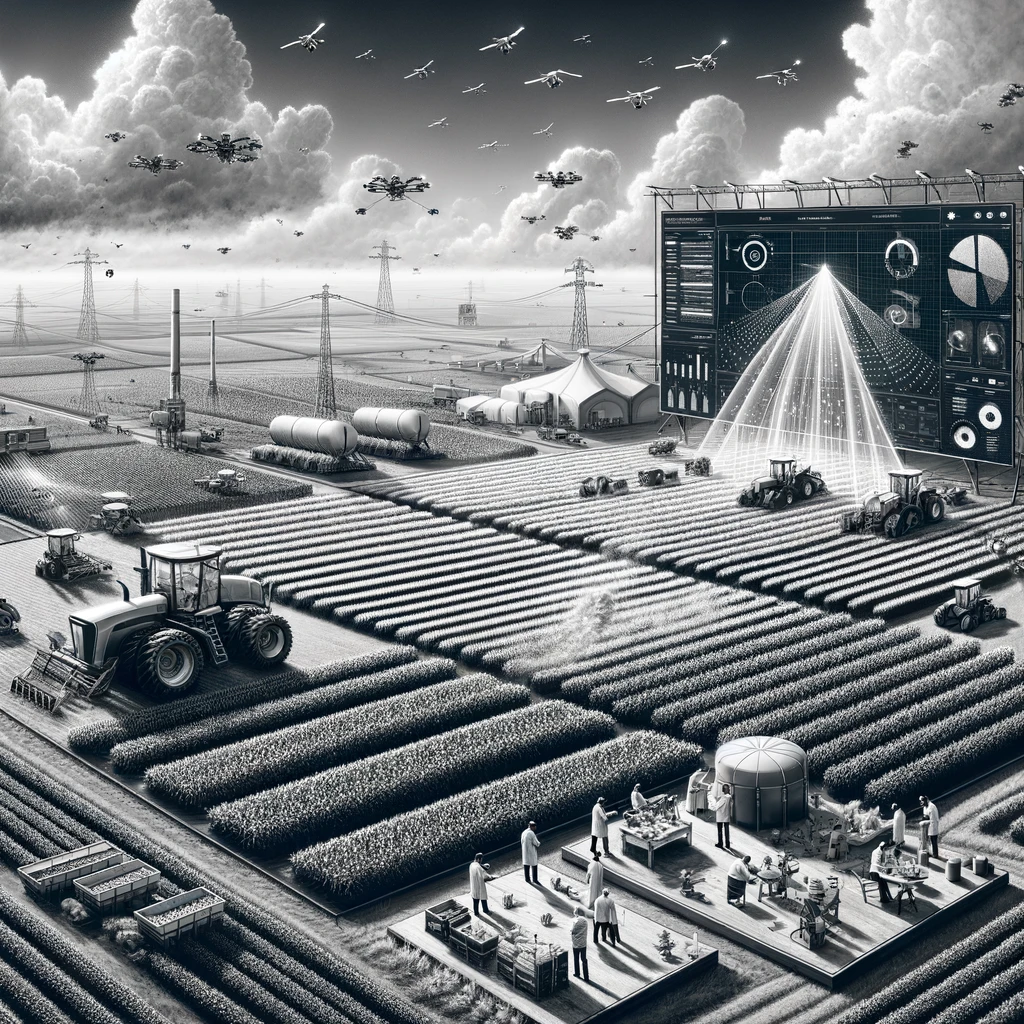Foundational Algorithms in Agricultural AI
Machine Learning (ML) Algorithms
Regression Algorithms
Linear and logistic regression algorithms are foundational in predicting outcomes such as crop yields or soil moisture levels based on various input variables. For instance, linear regression can forecast the yield based on factors like rainfall, temperature, and soil nutrients.
Decision Trees and Random Forests
These algorithms are instrumental in classifying and predicting outcomes based on non-linear and complex data sets. Random Forest, an ensemble of decision trees, is particularly effective in improving accuracy in crop disease detection and pest infestation by analyzing satellite and drone imagery.
Neural Networks and Deep Learning
Convolutional Neural Networks (CNNs) are at the forefront of processing and interpreting imagery from drones and satellites for tasks such as plant disease identification, weed detection, and crop monitoring. Recurrent Neural Networks (RNNs), especially Long Short-Term Memory (LSTM) networks, are adept at analyzing temporal data for predicting weather impacts on crop production.
Unsupervised Learning Algorithms
Clustering Algorithms like K-means are used for segmenting farmland based on various characteristics (e.g., soil type, moisture levels) to optimize resource allocation, such as water and fertilizers, enhancing the precision farming approach.
Principal Component Analysis (PCA) is utilized for dimensionality reduction in large datasets, enabling the efficient processing and visualization of data for better decision-making in crop management and selection.
Applications of AI Algorithms in Agriculture
Soil and Crop Health Monitoring
CNNs analyze images to detect nutrient deficiencies, water stress, and diseases at early stages, allowing for timely intervention.
Predictive Analytics for Yield Optimization
ML algorithms, including regression models and random forests, process historical and real-time data to predict crop yields, helping farmers make informed decisions about harvest times and market sales.
Precision Farming: Decision trees and clustering algorithms analyze data from soil sensors and environmental conditions to provide precise recommendations for irrigation, fertilization, and pesticide application.
Supply Chain Management
AI algorithms optimize the agricultural supply chain by predicting demand, managing inventory, and ensuring efficient distribution channels, significantly reducing waste and improving market responsiveness.
Challenges and Ethical Considerations
Implementing AI in agriculture raises challenges such as data privacy, the digital divide, and the need for transparent and ethical AI practices. Ensuring the security of farmers’ data and providing equitable access to technology are paramount. Additionally, the development of AI models must consider environmental impacts and promote sustainability.
Future Perspectives
The future of AI in agriculture lies in the integration of more advanced AI models, such as Generative Adversarial Networks (GANs) for simulating agricultural scenarios and improving decision-making processes, and reinforcement learning for autonomous agricultural robots. Cross-disciplinary research and collaboration between agronomists, data scientists, and policymakers will be crucial in advancing these technologies while addressing ethical and environmental concerns.

